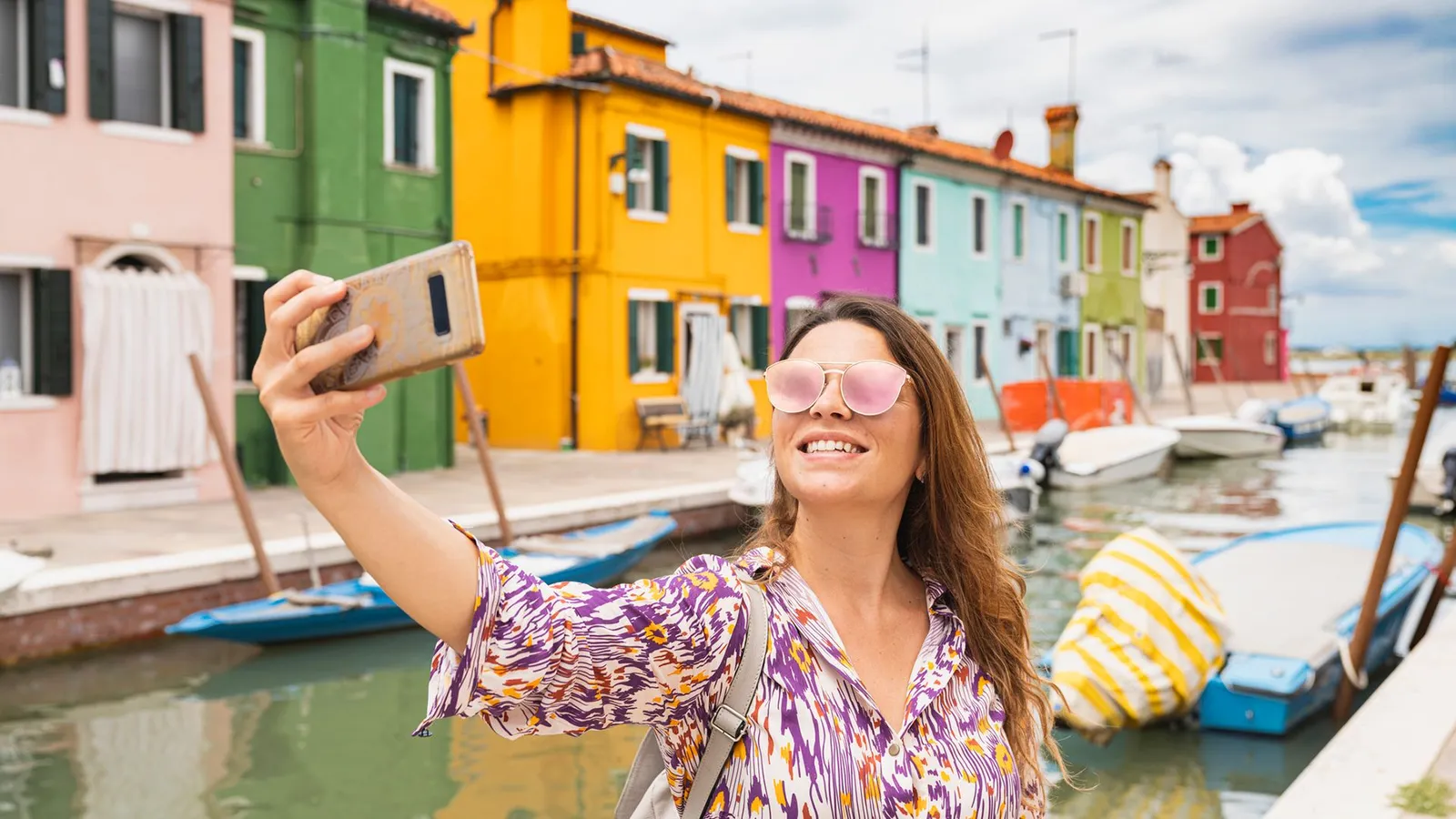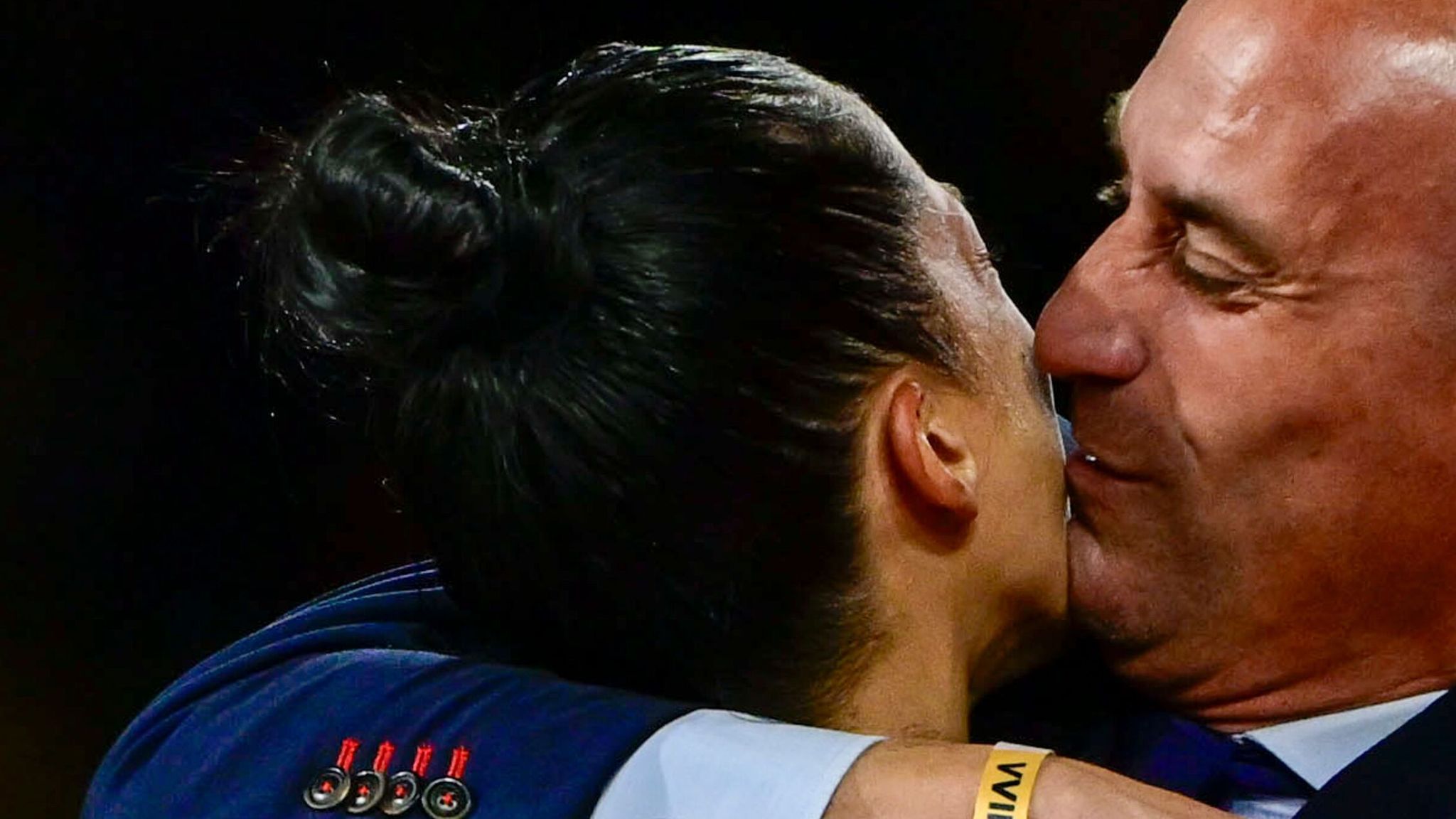Are we seeing the slow decline of the travel selfie?
With tourists around the world behaving badly in their quest to get the perfect Insta shot, some destinations and tour operators are working to get visitors to go beyond the selfie.

It was nearly 10 years ago that Karthika Gupta's five-year-old son was knocked down in Yellowstone National Park by tourists clamouring to get a photo of themselves with the roaming bison in the background. But since the upsetting incident, Gupta, a photographer and writer, has only seen an increase in this kind of pushy behaviour in search of the perfect selfie.
On a trip to Sri Lanka just before the pandemic, she witnessed hordes of tourists jostling to get an Instagram-worthy shot of Coconut Tree Hill in Mirissa. While no one (that she saw) was injured, Gupta's enjoyment was zapped, and she was left frustrated that she was unable to fully see, let alone photograph, the lauded sunset.
Gupta's not against taking photos (she'd also hoped to get a few shots for her portfolio), but she cannot abide what she describes as a "lack of consideration for others". What was supposed to be a gorgeous, arresting sight was ruined by the rudeness of too many people trying to get a photo of the spectacular setting. "It's not a beautiful memory," Gupta said of her time visiting one of Sri Lanka's most popular spots (at the time of publication, #MirissaSriLanka had more than 20,000 tags on Instagram)
Selfie culture isn't new, and neither is "deviant behaviour", according to Vanja Bogicevic, a clinical associate professor at the Tisch Center of Hospitality at New York University, who notes the latter has been around for a very long time. But with the rise of "revenge travel" and "the fear of missing out", overtourism – and selfie culture, a seemingly linked consequence – has accelerated since the pandemic, she explained.
Although some destinations are endeavouring to lure travellers to lesser-known attractions and regions – Bogicevic cites Amsterdam's efforts to migrate its red light district to the city's outskirts and Florence's attempt to draw travellers to less-familiar neighbourhoods – others, like Venice, can't seem to escape their bucket-list popularity to the detriment of the city's values and the chagrin of its locals.
Last month, a gondola meandering the canals of Venice capsized when a group of travellers from China refused to sit down and stop taking photos. It wasn't the first time a tourist caused mischief in Venice, and it likely won't be the last in the storied Italian city – or elsewhere.
Despite efforts from destinations around the world who long for tourists to stop and smell the proverbial flowers without necessarily capturing every second on camera, there are visitors who "go against societal norms", exhibiting behaviour that's "disrespectful for the culture", said Bogicevic.
Whether it's dressing inappropriately in religious settings (with selfies to prove it), posing in front of memorials or engaging in risky photo-taking behaviour (such as in Venice), this behaviour can be problematic for both residents and visitors. However, the prevalence of locals objecting to tourists behaving badly is on the rise, and they're voicing their concerns with authorities who are starting to take action.
Policymakers and governments are putting measures in place to restrict travel to certain bucket-list sites, limiting capacities or levying high fees for visitation. Some are even taking direct action against elaborate photo shoots and selfie-takers.
Two years ago, New Zealand adopted an innovative approach to combating selfie culture when it urged travellers to stop taking influencer-inspired photos at tourist hotspots and to share something new about their travels in the country instead. Last May, the tourism hotspot of Hallstatt, Austria, erected a wooden wall at its most popular selfie spot to block the view of the Alps in protest against noise pollution and traffic. (After a backlash on social media, it was removed.) And in autumn 2023, Vermont made headlines when it banned influencers who'd been coming in droves for pictures of the idyllic autumn foliage.
The challenge with selfies is when getting the picture becomes more important than breathing in the actual experience
In Big Sur, California, the Sustainable Movements Initiative, which promotes responsible behaviour along the iconic, Instagram-worthy Highway 1, isn't anti-selfie, said Rob O'Keefe, CEO & president of See Monterey, but it is aiming to get visitors to go beyond the selfie. "The challenge with selfies is when getting the picture becomes more important than breathing in the actual experience," said O'Keefe, who hopes people will stop to revel in the views, recognising that a picture will not do them justice.
These policies can be useful, and Bogicevic adds that education and example-setting – by destinations and tour companies and even travel influencers – is also important, especially as some places may need the promotion as well as the resulting tourism dollars.
"If somebody's watching the influencer channel, and they are prompted to go to that destination, maybe it's the responsibility of the influencers to actually educate tourists [through their content]", she said.
For some Gen X travellers, however, incessant selfie-taking will never be anything but a nuisance, much less an inspiration for future travel and trip planning. Gupta and her family, who live in Chicago, adore Yellowstone but they go during the winter now, when crowds are sparse. They regularly seek out destinations that are under the radar to avoid throngs of selfie-obsessed travellers who threaten to take away from their experience.
"I get annoyed that people refuse to put devices down and be in the moment," added Jeremy Harlan, a CNN producer (and Gen Xer) who lives in Denver, Colorado, and travels regularly for both work and leisure. "If you're on a hike around Montserrat, just stop and look at the beauty with your eyes and burn it into your head. The iPhone 15 isn't coming close to replicating that image."
I get annoyed that people refuse to put devices down and be in the moment
Selfie culture has ruined the cobblestone streets of Dumbo, Brooklyn, according to Allison Tick, an interior designer who identifies as a member of Gen X. Dumbo is the "perfect example" of how this "phenomenon has gone too far", said Tick, who points out how one entire street in the neighbourhood is now blocked off "for selfies". It's not a place she can enjoy any longer, and she says it's a shame. "First of all, I know this just shows my age, but even the word selfie, I hate. You're just taking pictures of yourself."
Or, you're taking pictures of yourself and a random stray cat and missing out on the essence of a truffle hunt experience you paid for and then complaining about it later, as was the case with one participant of Experience BellaVita, an independent tour operator in Italy. This ultimately led to the company implementing a new way for truffle hunting participants to "immerse themselves in the moment", explained Marino Cardelli, owner of Experience BellaVita.
Now, on truffle hunts in Abruzzo, Experience BellaVita's participants are given tools – truffle hunting hoes and treats for the truffle hunting dogs – so that they actively engage with the experience and don't reach for their devices so quickly. The idea, said Cardelli, is to discourage people from using their phones so they might have a "more meaningful travel experience that goes beyond the superficiality of selfies".
That said, Cardelli understands the desire to have a visual takeaway of the truffle hunt experience, which is why he's enlisted a professional photographer to document the experiences for travellers.
To encourage richer and more spontaneous travel experiences, FTLO (For the Love of Travel), a travel company that primarily designs group trips for Millennials and Zoomers, recently launched phone-free departures. "If someone can't commit to an entire phone-free trip," they're encouraged "to embrace phone-free days", said Tara Cappel, the company's CEO and founder, who believes this practice will enable the group's participants to be fully present without feeling the pressure to post on social media and be "reachable 24/7".
Although it's mostly members of Gen X voicing their distaste in selfie culture, Cappel believes Millennials and Gen Z travellers are just as interested in distraction-free experiences – digital detoxes where they can put their phones down and connect with other travellers and the environment in a genuine way.
There's such a difference in the travel experience without the pressure/crutch of a smartphone
"There's such a difference in the travel experience without the pressure/crutch of a smartphone," said Cappel.
Tick doesn't necessarily need a phone-free trip; she appreciates having pictures to look back on after a trip. It's the posing and the striving for perfection in an attempt to make it all look candid that she can't stand. "I like photos, and I like to travel and have photos so I can remember things," Tick said. But she wishes it were simpler. "If you want a picture, take a picture."
And if you do still feel the need to get that perfect Instagram shot, O'Keefe says that curbing irresponsible selfie behaviour is half education and half enforcement. "Do not break the law to get a selfie," he said.
-bbc






